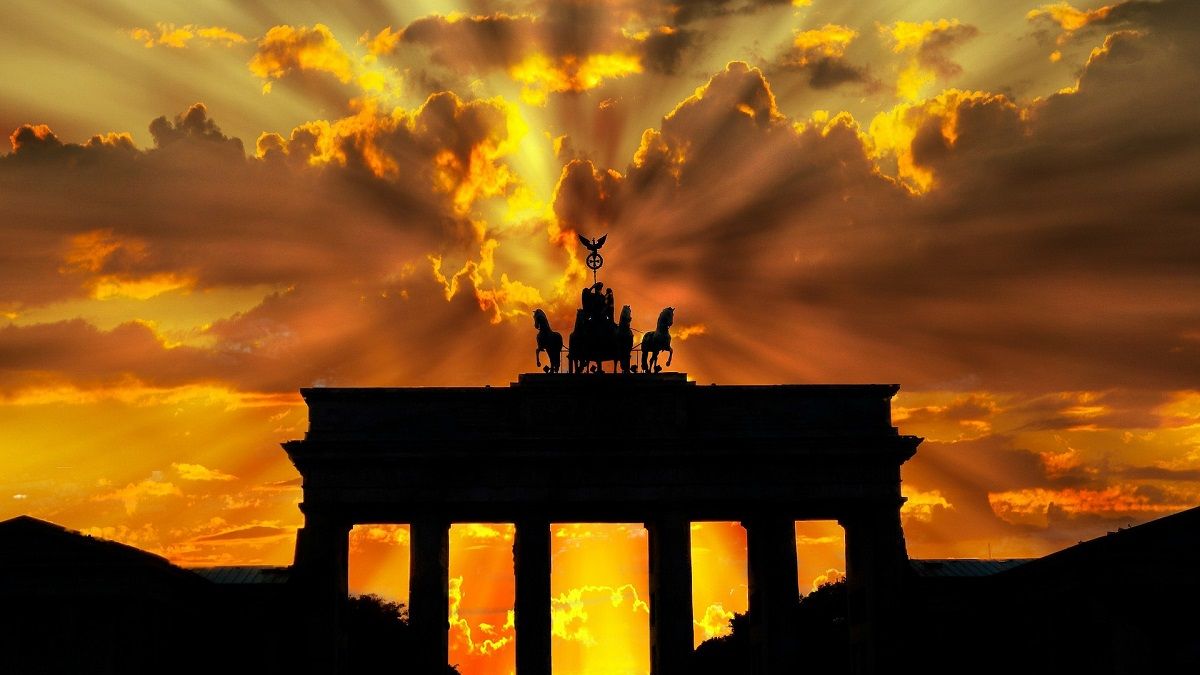Much like cricket, no one really understands how the German election system works. All we know is that there comes a point where everyone is fed up with the fun and games, and it is decided somehow that someone has won. Everything up until that point is pretending.
(On a side note about cricket, confusion over the rules causes, and is caused by—in some ouroboric motion—the wearing of white by both sides. No one knows which team they belong to or even if there are two teams or more. That’s why they play so far away from spectators who have been distracted by tea and cakes. It’s all a scam).
That is why, days after the elections in Germany, we have no clear idea of who will replace Angela Merkel as chancellor when she steps down.
The current favourite to take over as chancellor is Olaf Scholz, head of the Social Democratic Party, which picked up 26% of the vote on Sunday, surpassing the Christian Democratic Union’s 24%. In a parliamentary system with only two clear parties such as the UK and US, that might make Scholz as chancellor a certainty, but this is Germany with multiple parliamentary parties, loyalties, and alliances. Instead, we are now looking at a coalition of some sorts.
“Scholz’s party,” wrote The Washington Post this week, “was the junior partner to the CDU in Merkel’s outgoing government, the third time the SPD joined its traditional rival in a coalition. It’s a position the SPD took on reluctantly — but one that has enabled Scholz to raise his profile nationally.”
The Post went on to outline Scholz’s qualifications: “As finance minister and vice chancellor in Merkel’s cabinet during the pandemic, Scholz, 63, built a reputation as having steady hands during a crisis. He oversaw the distribution of billions of euros in coronavirus relief and emergency aid to victims of the summer’s deadly flooding in western Germany. He has been called the ‘Scholzomat’ for his dry, verging on boring, political style. But that may have served him well with voters still attached to Merkel, who was hardly known for impassioned speeches. Despite being from a different party, he has positioned himself as her natural successor.”
Enough is enough
Not that the outcome is yet clear. As The Economist wrote in its analysis: “After a fragmented vote, the shape of Germany’s next government will depend on fraught, and perhaps lengthy, coalition negotiations. Both Olaf Scholz, the SPD’s chancellor-candidate, and Armin Laschet of the CDU/CSU have claimed a mandate to try to form a government. Both will probably have their eyes on three-way deals with the Greens and the Free Democrats: either a ‘traffic-light’ coalition led by the SPD or a ‘Jamaica’ combination headed by the CDU/CSU. But it seems Mr Scholz has the edge.”
Such confusion, wrote Deutsche Welle editor-in-chief Manuela Kasper-Claridge, was actually a pretty clear message from German voters. Make sense of that if you can.
Wrote Kasper-Claridge: “Change has come. The decision of the German electorate is clear. It’s game over for the trivial compromises of the last grand coalition. Now it’s time for big challenges like climate change, digitalisation, and the necessary modernisation of Germany.”
The vote, wrote Kasper-Claridge, was a clear rebuke to the CDU and CSU, which has dominated politics here for the last decade-and-a-half. “Even though the CDU/CSU lost fewer votes than many polling firms had predicted,” she wrote, “you simply can’t sugarcoat such a dramatic fall from the last federal election. Their CDU chancellor candidate, Armin Laschet, could not convince voters, despite achieving some success as the premier of Germany’s most populous state, North Rhine-Westphalia. Support for the CDU’s Bavarian sister party, the CSU, also plummeted. It’s looking like their worst election result since 1949. After 16 years in government, the so-called ‘Union’ of CDU and CSU is ripe for the opposition.”
Big sigh of relief
This confusion and uncertainty has not really been reflected on the markets. The DAX rose briefly between Friday and Monday, from 15,531.75 to 15,573.88. And while it dived on Tuesday to 15,248.56, it was bumping up again on Wednesday to 15,401.36.
In fact, the markets seem to be welcoming the idea of Scholz as the next chancellor. As the publication Barron’s wrote earlier this week: “Germany’s blue-chip DAX and other European stock indexes opened higher Monday after finance minister Olaf Scholz’s Social Democrats won a tight election over the conservatives of outgoing chancellor Angela Merkel. The German index rose 0.85% to 15,665 points shortly after the open of markets in response to a national result expected to bring continuity in economic policy. Businesses breathed “a big sigh of relief” that the far-left Die Linke party is unlikely to enter government after a poor performance at the polls, said Holger Schmieding, chief economist at Berenberg Bank.”
All of this suggests that, like Scholz, the German economy is boring, dependable, reliable, and routine. Given that the UK is currently ‘run’ by a game show host, and with an unelectable, infighting Opposition: boredom, dependability, reliability, and routineness has never sounded so good.







